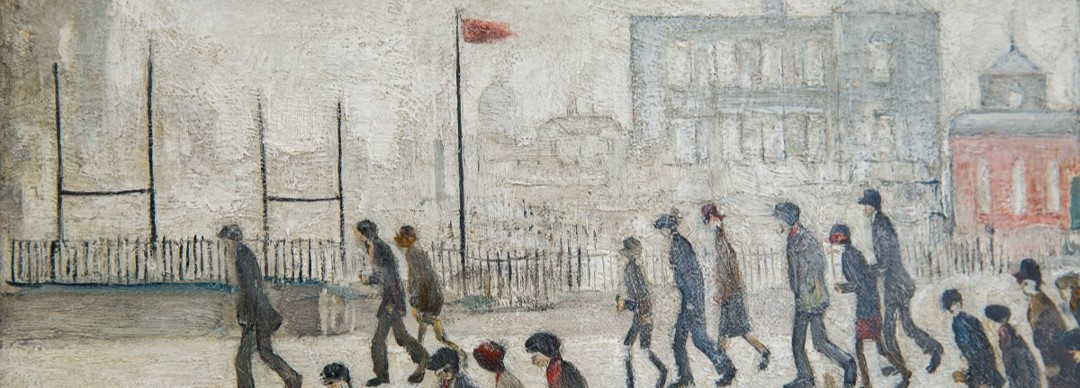Rugby league has never fully taken off in Liverpool, but the Greatest Game has had a small part to play in Scouse history.
It was particularly poignant to celebrate Global Scouse Day for the first time since my southern exile. I had the opportunity to make a pan of Scouse for my Wiltshire church friends on Sunday, and yesterday evening to enjoy a few bottles of pale ale from Love Lane Brewery in the Baltic Triangle.
Global Scouse Day has grown as a celebration of Liverpool’s
culture and its eponymous stew, so it was great that this past week also saw the
season launch of Liverpool Lions RLFC at a rain-swept Pier Head.
But although rugby league is definitely one of the things I
miss most about the North, the unfortunate thing is that the game has very
little impact in Liverpool – almost the point at which league feels as much a
stranger in Liverpool as it does down here in Westbury.
* * *
Yet rugby league has had a small part to play in Scouse
history. A Liverpool side competed in the Northern Union in 1906/07, though
were demoted at the end of the season and folded just a few months later.
It was Highfield who became Liverpool’s best-known rugby
league representatives after their brief sojourn at White City Stadium in
London, relocating to Old Swan’s Stanley Greyhound Stadium as Liverpool
Stanley, where they stayed until 1951.
The club later became a by-word for rugby league mediocrity,
but in 1936 were the champions of Lancashire, having finished second in the
overall league table to Hull.
The decaying Old Swan ground was swapped in 1951 for the
purpose-built but ramshackle Knotty Ash Stadium and the club re-branded as
Liverpool City. But City struggled to attract supporters and few if any Scouse
players ever took to the field.
There followed a dreadful period a couple of miles up the
road as Huyton RLFC before the
move to Runcorn in 1984.
* * *
Professional rugby league in Liverpool had been and gone by
the time I came along. My first memories of the game in the city were visits to
Sefton RUFC’s Leyfield Road ground in West Derby to watch Liverpool Buccaneers,
one of the many expansion sides to emerge as part of the TotalRL.com Rugby
League Conference.
The Buccs, founded in 2002, enjoyed a bit of success,
winning the Conference Grand Final in 2006 on their way to joining the RL
Conference National – the re-branded National League 3, purportedly Step 4 of
the rugby league pyramid at the time. It wasn’t sustainable, however; the club
folded in 2010.
Thereafter the centre of rugby league in Liverpool became De
La Salle School in Norris Green, thanks to the Liverpool Lions who made it
their home.
Facilities for players and spectators were basic, the pitch
itself was in atrocious condition, but I fondly remember bus journeys up
Dwerryhouse Lane and lunchtime pints in The Western Approaches before games
against the likes of Runcorn, Garswood Stags and Manchester Rangers ‘A’.
The best thing about Liverpool Lions – now based in
Fazakerley – is that unlike many of the clubs that came before them, most of
the lads who pulled on the shirt at open age and youth level actually were
Scousers. It may be at a relatively lowly level of the game, but to me that’s a
real expansion success story.
* * *
While a few Liverpool Lions players did go on to sign with
professional clubs, the only Scouse rugby league player to make it at the
highest levels of the game is Maghull-born James Graham, who made 236
appearances for St Helens, 135 for Canterbury Bulldogs and 52 for St
George-Illawarra Dragons.
Admittedly Maghull isn’t quite Liverpool, but it was always
a joy to hear Graham’s Scouse accent in post-match interviews.
Unlike Manchester – that other Lancashire city that seems largely
immune to the joys of rugby league – Liverpool never regularly hosted the
game’s big events, though in recent years Anfield has staged a few significant
occasions: the Australia-New Zealand Four Nations final in 2016, an England-New
Zealand Test match in 2018, and the 2019 Magic Weekend.
Sadly, a 2020 World Cup quarter-final originally scheduled for Anfield has had to be moved to Wigan ahead of this autumn’s postponed tournament (similarly the wheelchair World Cup final has had to be moved away from the M&S Bank Arena).
For pub-goers The Fly in the Loaf has for many years been a
rugby league enclave, where a small-but-committed band of supporters gather for
live Super League and other televised fixtures. One of my personal traditions
before moving south was an annual Good Friday visit to The Fly to watch St
Helens v Wigan.
And finally, it would be remiss as a University of Liverpool
alumnus not to mention the university’s role in the game: in 1968 the first
ever student game took place between Liverpool and Leeds universities, while
for the past several years Liverpool’s women’s team have played a pioneering
role in the still-developing women’s university game.
So raise a pint of Liverpool-brewed ale to the men and
women who have contributed to the history of the Greatest Game in the Pool of
Life.



Comments
Post a Comment